Freedom to Protest Is Under Attack – Why It Matters for Everyone

When states suppress public protests, they don’t just target activists, they erode the rights of all citizens. The latest crackdowns in Hungary, Turkey, and beyond show why defending freedom of assembly is more urgent than ever.
On 8 March, people took to the streets to mark International Women’s Day, but their right to march was actively suppressed in many places. From Kazakhstan to Turkey and Azerbaijan, authorities used intimidation, force, and legal threats to prevent women from gathering, exposing a broader pattern of restrictions on civil society. Meanwhile, in Hungary, the government has escalated its efforts to suppress freedom of assembly, passing a law that explicitly bans Pride marches and introduces surveillance measures to deter participation.
Crackdowns on feminist and LGBTI protests
Ahead of Women’s Day, Kazakhstan authorities detained LBT activists from Feminita, using penal and administrative tactics to suppress their activism. In Turkey, nearly 200 people were detained in Istanbul alone, with police blocking demonstrations across multiple cities on the 8th. Among those detained was a trans woman, underscoring how trans activists are often specifically targeted. In Azerbaijan, feminist activist Rauf Heydarov was sentenced to 30 days of detention after attempting to display a poster on 8 March, with fabricated charges used to justify their arrest. These cases illustrate how states use arbitrary detentions and legal mechanisms to intimidate activists and restrict their right to assemble and protest.
Hungary: From threats to an outright ban on Pride
In Hungary, restrictions on freedom of assembly have intensified dramatically. What started as a “child protection” law—banning the “depiction or promotion” of homosexuality to minors and widely condemned by EU leaders, the European Commission, and the Council of Europe as violating international human rights standards—has now escalated into a nationwide ban on Pride marches. The new law not only criminalises these events but also permits the use of facial recognition technology to track and penalise participants. Despite this, the Budapest Pride organisers remain committed to marching, demonstrating the resilience of the movement in the face of increasing authoritarianism.
A key indicator of democratic health
These events in Hungary, Turkey, Kazakhstan, and Azerbaijan are not isolated incidents. They reflect a broader trend in which governments seek to silence peaceful and legitimate dissent by restricting public demonstrations, targeting women’s rights and LGBTI activists, and using legal measures to suppress fundamental rights. The ability to protest is a key indicator of democratic health. When states criminalise peaceful assembly, they erode not just rights for LGBTI people and women, but the broader foundation of civil liberties for all.
As these threats grow, the international response must be clear. Governments, the EU, and international institutions must hold states accountable for these violations and stand in firm defence of the right to protest. Freedom of assembly is not just an LGBTI or feminist issue; it is central to human rights and democracy. When one group’s right to gather is restricted, the ability of all people to organise and demand change is at risk.
The human right to assemble and protest must be protected, defended, and upheld.
Top European Court Strikes Out Case Against Azerbaijan for LGBTI Arrest and Torture
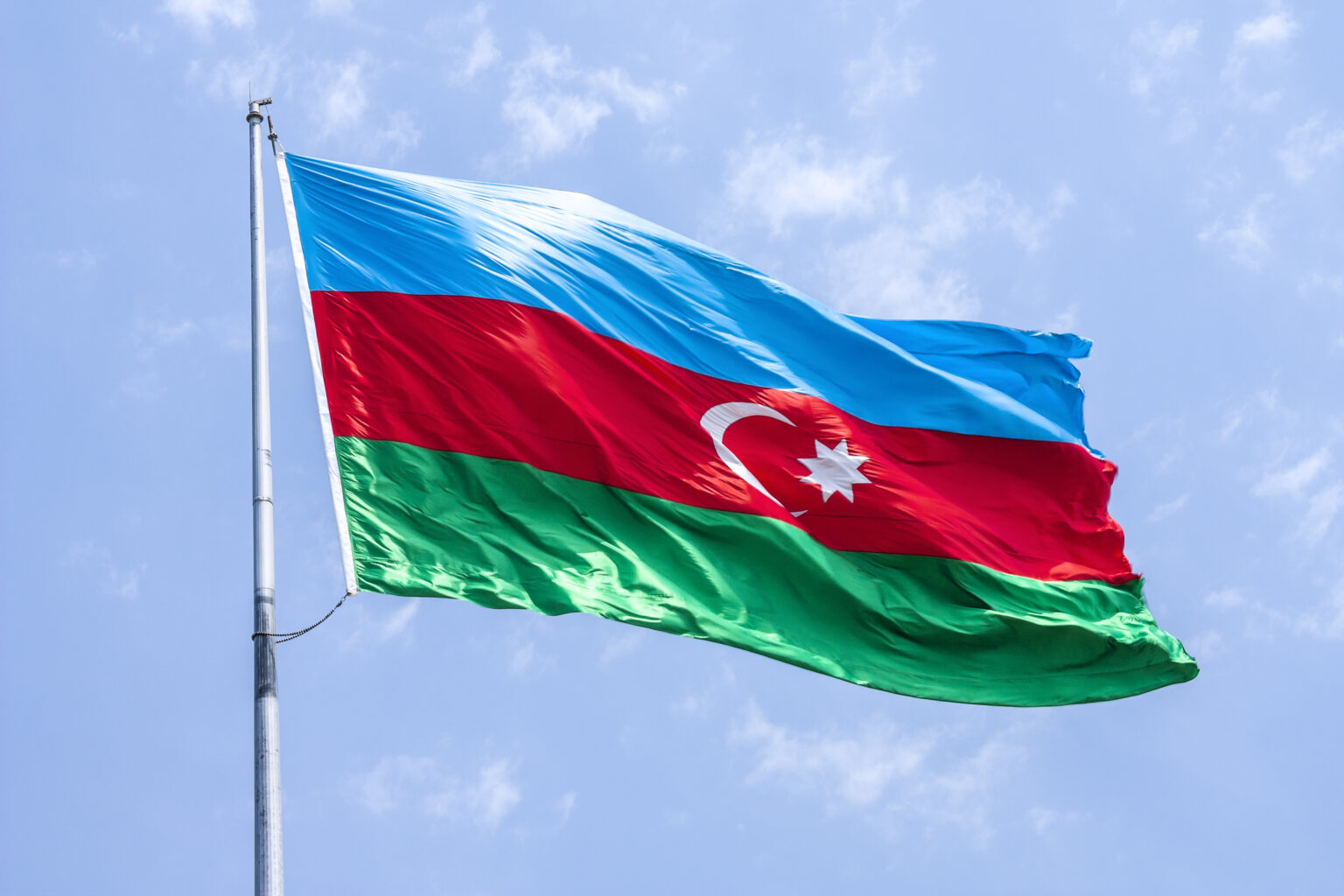
A case against Azerbaijan by a large group OF applicants who were arrested in a wave of anti-LGBTI police raids and forced to undergo medical examinations has been struck out by the European Court of Human Rights
Last week, the European Court of Human Rights decided to strike out A. v Azerbaijan and 23 other applications. The case involved a wave of police raids in Baku in September 2017 that led to the arrest, ill-treatment and forced medical examinations in detention of members of the LGBTI community.
In its decision, the Court considered that it was no longer justified to continue the examination of the applications given the Government’s unilateral declaration made in 2019, according to which it acknowledged that “there was a violation of the applicants’ rights guaranteed in the Convention” and offered to pay compensation to the applicants.
The applicants expressed deep dissatisfaction with this declaration, saying the Government’s acknowledgement lacks specificity regarding the nature and extent of the violations; the Government gave no undertaking for general measures to prevent future violations and there are no necessary provisions under domestic law for holding the perpetrators of those acts of violence accountable. This is particularly problematic as those groups kept being targeted subsequent to the 2017 arrests, in view of their perceived SOGIESC.
According to Leyla Osmanova, a victim of 2017 arrests, “The world saw it, the world knew about it. We were tortured, literally. Even a million dollars cannot cover the cost of psychological trauma, as I continue to live in fear. Although I am in a safe place now, that psychological trauma ruined my life. The court process took a long time, the decision is just a mere decision, the compensation is ridiculous.”
She added: “This event made me long for my native country. I have lost faith not in the country, but in the police and laws there.”
ILGA-Europe together with Civil Rights Defenders and REDRESS had submitted a third-party intervention in the case. Azerbaijan currently sits at the bottom of the ILGA-Europe Rainbow Map, which ranks all 49 European countries on a scale between 0% (gross violations of human rights, discrimination) and 100% (respect of human rights, full equality).
What we can learn from LGBTI activists against all odds
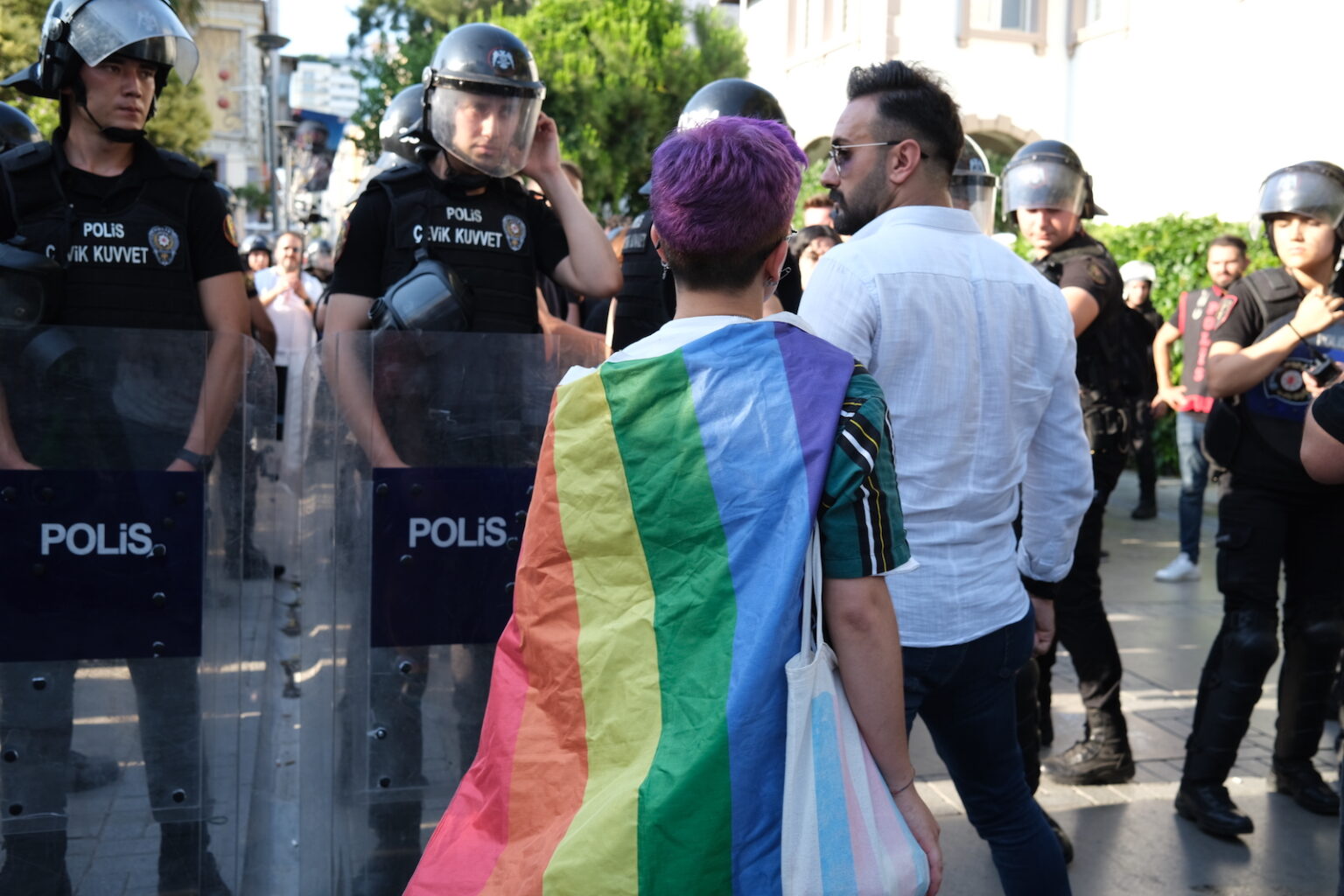
In countries where governments are pushing back on LGBTI people’s rights, joining Pride events is a courageous act that carries higher risks. However, it is in their invisible, everyday work where LGBTI activists showcase their most profound courage. The LGBTI movement in Turkey, as well as in Armenia and Azerbaijan, serve as remarkable examples of resilience against all odds. Keep reading to discover some key insights from our movement and find out more in our podcast.
“Take a moment and imagine yourself in this context,” begins Anastasia Smirnova, ILGA-Europe’s Programmes Director in a recent episode of The Frontline. “For eight years, you’ve been living amidst detentions, smear campaigns, cases against LGBTI activists, and violence that goes unpunished. Extremism and terrorism are terms often associated with the LGBTI movement. You vividly remember last year’s Pride events where hundreds were detained and subjected to police violence.”
This is not a fictional scenario but the daily reality of LGBTI activists in Turkey. Led by recently re-elected President Erdoğan, the Turkish government has intensified systematic attacks on LGBTI people since 2015, when the Istanbul Pride march was banned for the first time.
“So, would you show up at the Pride events in Turkey this year?” asks Anastasia.
“Not an imaginary you – not the bravest and most courageous version of you living in a vacuum. But the real you, with your life circumstances, responsibilities, and current challenges. What would inspire and empower you to show up, ready to face violence and knowing that detentions are possible?”
LGBTI activists in Turkey, and in countries where the government actively opposes LGBTI rights and existence, face potential repercussions, including in their personal lives. But instead of being discouraged by Erdogan’s hostility exhibited during the elections and the previous nine years in office, LGBTI activists in Turkey have organised a record number of Pride events over the spring and summer.
Despite all the risks and knowing that 500 people were detained during Pride season in 2022, they continue to show up.
“It is hard to imagine a stronger and clearer display of strength, solidarity, and resilience than LGBTI people and allies in Turkey taking to the streets, participating in the broader political context, and using their voices despite years of political intimidation,” says Anastasia.
Activism beyond Pride events
They do this not only during Pride season but every day. “For this to be possible, massive invisible work has to happen daily.” This work, unlike Pride events, will not make headlines. Yet, this is the work that enables people to continue showing up and grow their strength in numbers.
Prides and public protests are not the only signs of a strong movement. Referring to the countries at the bottom of our Rainbow Map ranking, where freedom of assembly is severely restricted, “people’s power manifests very differently, and often not on the surface,” explains Anastasia
Examples are offering expertise pro bono, contributing money, helping build connections with businesses, other civil society organisations, the media, among professionals or in educational, cultural, or healthcare spaces.
“It is people doing what they can in their immediate environment to improve the situation of LGBTI people, creating an alternative layer in society that counters state-sponsored anti-LGBTI ideologies,” says Anastasia.
What Turkey, Armenia and Azerbaijan teach us
The three countries at the bottom of the Rainbow Europe scale in 2023 are Azerbaijan, Turkey, and Armenia, the same as the last three years. Yet, the LGBTI movement in these countries offers valuable lessons for all LGBTI groups across the board.
“Over the last 15 years, we’ve seen not only how countries can advance but also how human rights and freedoms are attacked,” says Mehmet Akin, Senior Communications Officer with ILGA-Europe.
When anti-democratic representatives instrumentalise LGBTI people for their own political gain, the freedoms of LGBTI people are gradually taken away. Countries at the top of our ranking are not immune to these anti-democratic forces, who are increasing their presence across the region.
“This is a wake-up call from countries at the bottom of the ranking to those at the top, as LGBTI rights are one of their primary targets,” says Mehmet.
Despite all hardships, LGBTI movements in Russia or Turkey, but also in the EU, as in Poland or Hungary, have developed effective strategies for advocacy, community building, and exercising their freedom of assembly and expression.
“I think activists at the top of our list can learn from the countries at the bottom in terms of the experience they’ve already gained in continuing their work despite legal regression and societal repression,” concludes Mehmet.
Listen to the complete episode and learn more about the strength of the movement against all odds here and to all episodes about our Rainbow Map here.
Photo credits: Murat Kocabaş / Kaos GL
The Frontline: Behind The Rainbow Map: Activism in the Lowest Ranking Countries
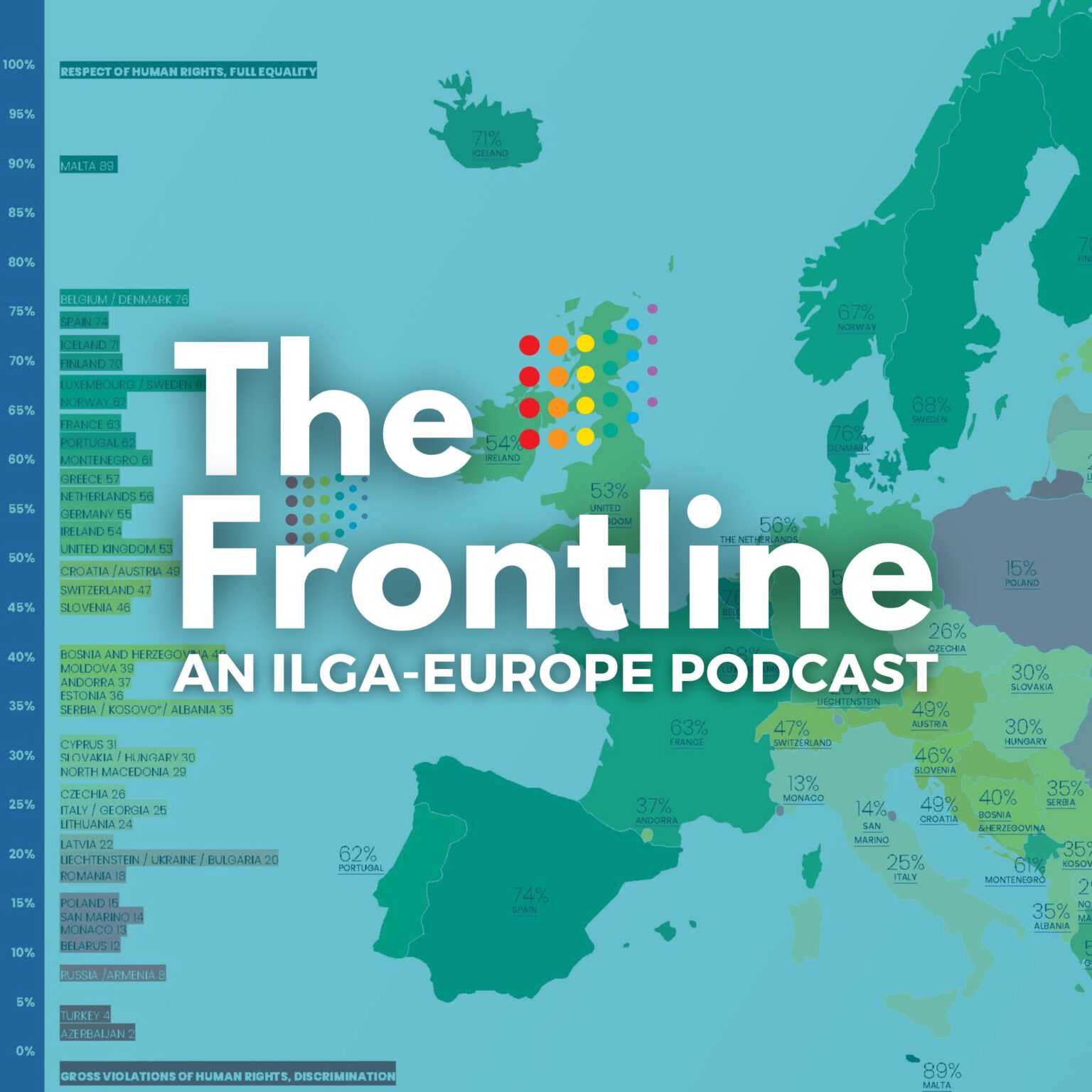
Every year since 2009, ILGA-Europe’s Rainbow Map has been ranking the 49 countries that make up Europe based on the legal and policy situations of LGBTI people.
While during this time there has been much movement at the top of the map, with Spain, Finland, Greece and Moldova making big jumps this year, the countries at the bottom have largely been the same since the very first map, namely Russia, Armenia, Turkey, and at the very bottom Azerbaijan.
In this episode of our podcast, The Frontline, we ask the question, if a country stays at the bottom of the Rainbow Map ranking, does it mean there’s no queer activism happening there? In countries where advocacy is not possible, and where daily life for LGBTI people is often extremely challenging, what’s happening in the work towards LGBTI rights and equality? And is this mostly invisible activism bringing about change for LGBTI people in the countries where it seems life is getting worse rather than better?
The timeline leading from anti-LGBTI Instagram posts to the “honour killing” of an LGBTI activist in Azerbaijan
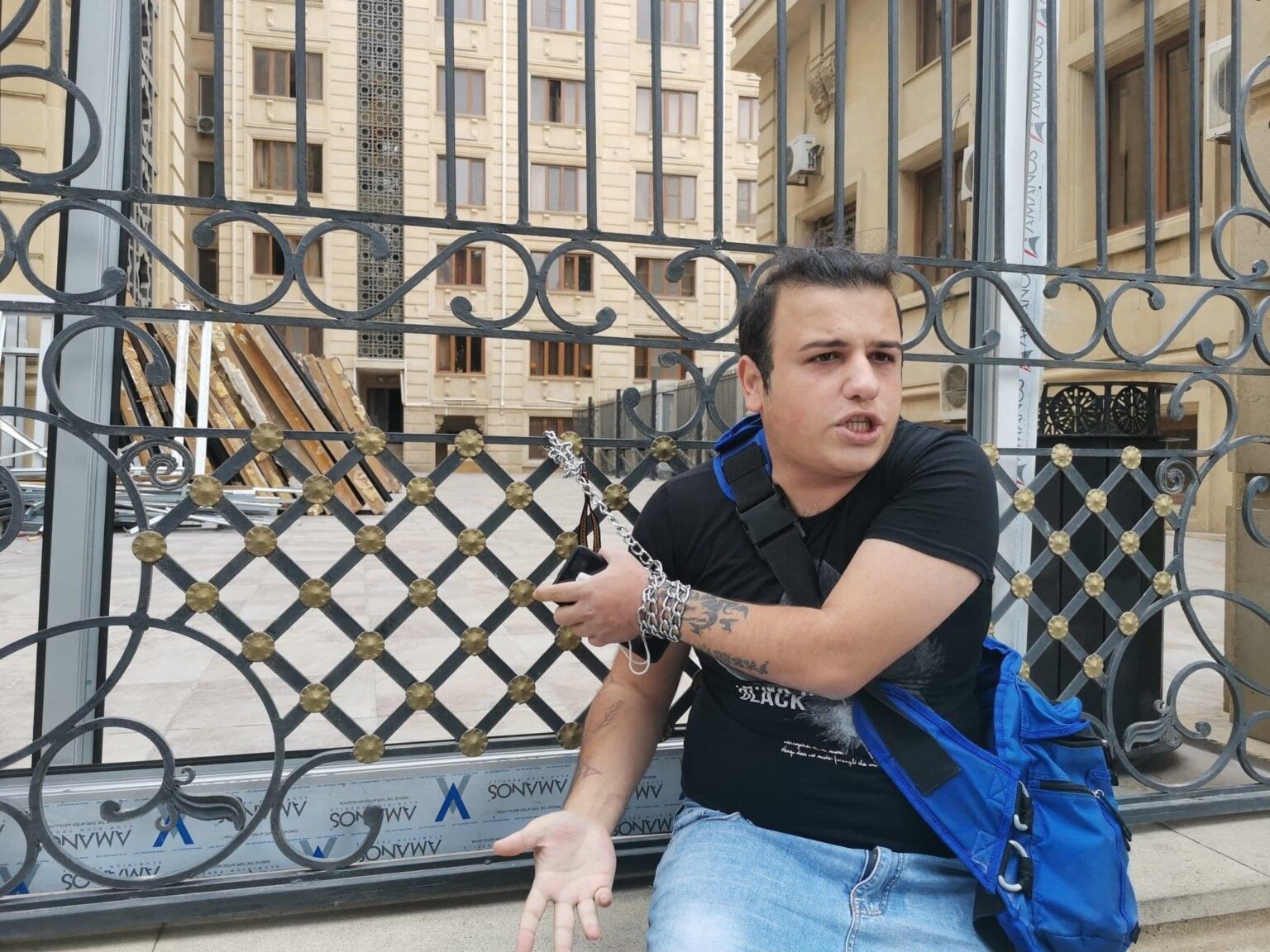
The cousin of LGBTI activist Avaz Hafizli has been jailed for his horrific murder, which came on foot of protests against hateful Instagram posts by the Instagram star, Sevinj Huseynova, who called for the physical ‘removal’ of sexual minorities and trans people from Azerbaijan. The trial was a travesty of justice, according to activists.
On 22 February 2022, the Azeri LGBTQ+ activist and journalist, Avaz Hafizli was brutally murdered by his cousin, 24-year-old Amrulla Gulaliyev. Local LGBTI activists in Azerbaijan believe the murder was motivated by homophobic bias and to protect the “honour” of the family.
The case has been investigated and last month Gulaliyev was sentenced to nine years and six months by Baku Court of Grave Crimes. During the investigation the additional details of the murder were not considered, namely the brutal circumstances of the killing and sexual mutilation of Avaz’ corpse. LGBTI activists were also barred from the court. Gulaliyev was sentenced without any consideration of a biased motive, which would have carried with it double the length of sentence.
ILGA-Europe believe that Azerbaijan failed to fulfil its human rights obligation to prompt, thorough, impartial, and independent investigation to hold responsible person to account for “honour killing” and hate crime as it did not take aggravating circumstances into account when determining sentence.
Avaz’s murder came in the wake of Instagram posts last year by Azerbaijani social media influencer, Sevinj Huseynova, who called for the physical ‘removal’ of sexual minorities and trans people from Azerbaijan in a video that was watched by thousands.
Here is a timeline in the lead-up to Avaz’ murder and the conviction of his cousin, and why it is an example of a stacked system against LGBTI people and the activist movement in Azerbaijan.
July 7, 2021
Azeri Instagram star, Sevinj Huseynova shared a video on her Instagram account in which she humiliated LGBTIs, especially trans women, and encouraged hatred and hostility towards them.
July 9, 2021
A group of trans women made an official appeal to the 17th police station and demanded that Sevinj Huseynova be brought to justice. Despite the appeal, no legal action was taken against Huseynova.
July 16, 2021
Three people were attacked due to their gender in their private house in Khirdalan settlement, Absheron region, and one of them was injured with three stab wounds.
August 13, 2021
Four LGBTI people were attacked in one of the buildings located on Heydar Aliyev Avenue in Khirdalan settlement. One of them was injured.
August 23, 2021
The burned body of Nuray, a trans woman targeted by Sevinj Huseynova, was found by locals in the Buta settlement of Garadagh district.
August 25, 2021
A group of trans women gathered in front of the Garadagh District Police Department and held a protest regarding the murder of the trans woman Nuray. Later, they gathered in front of the Ombudsman’s office and put forward demands. Avaz Hafizli was one of the organisers of the protest. He was vocal in criticising the police for not taking any action against Huseynova, and about the attacks in the wake of Huseynova’s Instagram video.
September 5, 2021
Avaz Hafizli attempted suicide after he was personally threatened and insulted by Sevinj Huseynova.
September 8, 2021
Avaz chained himself to the fences of the Prosecutor General’s, as protest against Huseynova threatening and insulting him and his family. Despite Avaz Hafizli’s official appeal to the prosecutor’s office, no action was taken.
September 10, 2021
Avaz held a one-person rally in the centre of Baku to protest the transphobic and homophobic hate speech by Huseynova. He held up a sign reading “LGBT rights, human rights” and chanted “down with homophobia.” Avaz expressed dissatisfaction with the failure of state agencies to respond to Huseynova’s threatening calls.
February 22, 2022
Avaz was murdered by his cousin, 24-year-old Amrulla Gulaliyev. The murder was conducted in a gruesome fashion, followed by mutilations of Avaz’ body after his death. Gulaliyev was subsequently arrested, and was charged only with the Article 120.1 of Criminal Code – Deliberate murder.
June 20, 2022
The preliminary hearing was held by the judge of Baku Court of Grave Crimes, Ali Mammadov.
July 18, 2022
Having been postponed on July 4, the second hearing was held. Hearings are open to the public, however civil society representatives were not allowed to attend.
Avaz’ brother represented him in the court and said he did not have any complaints against the perpetrator, his cousin. The court then asked Avaz’ mother to represent him. She said she would have to think about it.
There were some contradictions in perpetrator’s statements to police and his testimony in court. He originally told investigators that he had planned the murder three months before the event itself, however during the hearing he denied this. He said that had he and Avaz had been living in the same house for many years, and that only in 2022 did he decide to murder Avaz because of the moral ethics of society.
After repeated requests from LGBTI activists to attend the hearings, only three were allowed with the argument that ‘there are limited places’. However when the activists entered the court room there was sufficient space to have accommodated all the requests of activists to attend.
July 29, 2022
The three activists managed to attend the concluding hearing, at which Amrulla Gulaliyev was sentenced to nine years and six months in prison.
It is unclear to civil society whether the court’s decision will be appealed, as there is no contact with Avaz’ mother, who is his legal representative in this case.
Why this case is important for the Azeri movement and every LGBTI person in Azerbaijan
Over decades of monitoring by local activists, incidents of hate speech and hate crime in Azerbaijan have been numerous and severe. The state has taken no action to tackle homophobia at societal level, while existing legal mechanisms have not been implemented to protect LGBTI people from hate speech or attacks.
But this case shows how both the state and the family as institutions fail LGBTI people. While activists have gained sufficient legal knowledge and formed partnerships to offer legal support, they cannot intervene in cases where the family are both the perpetrators and the legal representatives of the victim at the same time.
The Azeri state’s efforts to silence the truth about this anti-LGBTI honour killing by not allowing the activists to access court hearings also adds to the impunity for such grave acts against this LGBTI people, who remain the most unprotected and vulnerable group in the face of homophobia in Azerbaijan.
A. against Azerbaijan and 24 other applications
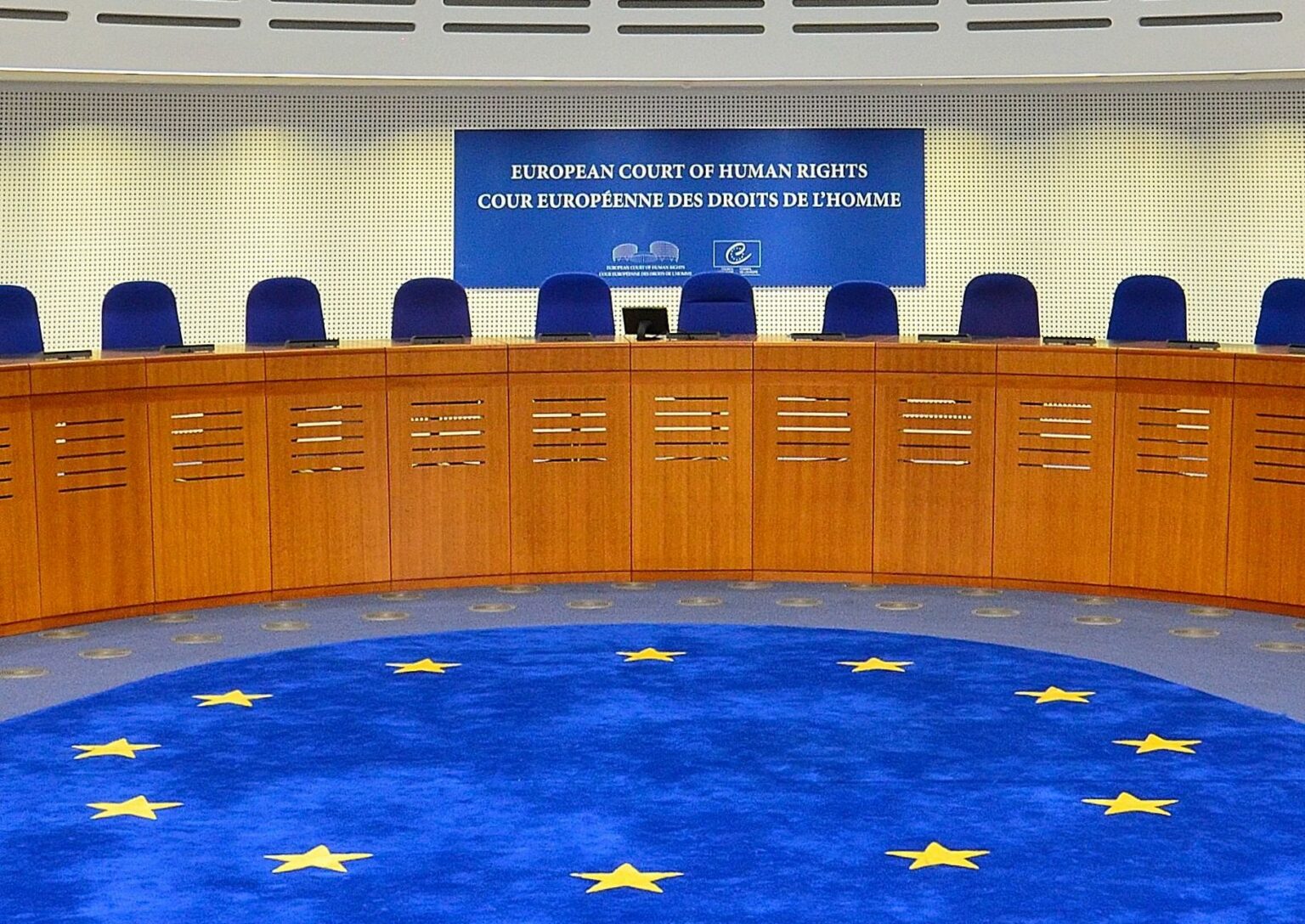
Violence against LGBTI people
(Application no. 17184/18), 15 July 2019
Find here the communicated case.
- The present case involves targeted arrests, ill-treatment and forced medical examinations in detention of members of the LGBTI community in Baku.
- ILGA-Europe together with Civil Rights Defenders and REDRESS submitted the following:
- The status of the victim of violence as a sexual or gender minority should be taken into account in the assessment of Article 3 violations. Indeed, discriminatory use of violence against a vulnerable group is an important factor and the ECtHR has acknowledged that LGBTI minorities may constitute vulnerable groups.
- Forced medical examinations directed at LGBTI members constitute a breach of Article 3 and Article 8 of the Convention. International human rights bodies denounce cases of forced medical examinations, describing them as torture and ill-treatment. The context of detention, the environment of negative attitudes against LGBTI minorities and the discriminatory motives of the medical examinations are relevant factors for the Court’s finding of an Article 3 violation.
- Contracting States have a positive obligation under the Convention to investigate allegations of ill-treatment and torture with discriminatory elements. According to the ECtHR, a failure to unmask the role of possible homophobic motives constitutes an infringement of Article 3 in its procedural element in conjunction with Article 14 of the Convention.
- Widespread discriminatory laws and practices against LGBTI people in Azerbaijan underline their vulnerability to discriminatory torture and ill-treatment.
International attention must focus on LGBTI people in Azerbaijan after police raids
Members of the LGBTI community in Baku are being actively targeted by police raids, with those detained being assaulted, forcibly medically examined, fined or forced to reveal contact details from their mobile phones.
ILGA-Europe are extremely concerned by news of human rights abuses emerging from Azerbaijan.
Exact numbers are hard to clarify at this point. According to our sources in the region, at least 50 members of the LGBTI community have been detained in raids that have taken place throughout the second half of September.
“Attempts by the authorities in Azerbaijan to downplay these detentions are not convincing.” commented Evelyne Paradis, ILGA-Europe Executive Director.
“Forcing any LGBTI people to be medically examined against their will is disturbing enough, but we also have received multiple reports of verbal and physical abuse. There is no justification for this indiscriminate targeting of people perceived to be members of the LGBTI community. It is a clear and serious breach of the European Convention on Human Rights.”
On 26 September, the Ministry of Internal Affairs confirmed that police raids had been taking place against individuals said to be “disrespecting the people around them”. The Ministry said that so-called sexual minorities had been detained, that the detainees had been forced to undergo medical examinations, and that the police investigation was not yet complete.
Human rights organisations and lawyers working in the region have spoken to LGBTI detainees and ILGA-Europe has seen victim accounts that appear to be credible.
Some victims told human rights activists that they were only released after handing over the contact information of other members of the LGBTI community to the police. Other detainees reported being arrested during the day or at their place of work.
Azerbaijan currently lies at the bottom of ILGA-Europe’s Rainbow Europe ranking, with minimal legal protections for LGBTI people.
The Ministry’s press service also stated that 16 people had been diagnosed with “AIDS or syphilis”. ILGA-Europe have not spoken directly with ministry officials but we assume that this is an inaccurate reference to HIV testing, confirming the authorities’ overall lack of understanding on the issue.
Evelyne Paradis continued: “ILGA-Europe are worried about the fate of the victims of these raids, and are calling for the immediate release of anyone still in detention. An independent investigation is now required, along with thorough monitoring of any subsequent trials.
We also ask intergovernmental institutions (such as the Council of Europe, the European Union, OSCE and the United Nations) to use all mechanisms available under their respective human right mandates to condemn the situation in Azerbaijan.”
Forced Out: LGBT People in Azerbaijan
This joint ILGA-Europe and COC report is the first of its kind to be published about same-sex relationships and LGBT people in Azerbaijan. It explores identities, common human rights violations, the landscape of LGBT organising, health and HIV/AIDS, and relevant legal aspects. It also provides recommendations to the Azerbaijani government, donors, LGBT activists and international organisations.
Lesbian, gay, bisexual and transgender people are not invisible in the predominantly Muslim Azerbaijani society. Tens of transgender sex workers go into the main street of the capital city Baku every night, prominent showbiz figures barely hide their sexual orientation, mass media gives more space every day to the subject of sexual orientation and gender identities. And yet one should not be misled by this relative visibility: there is a price of estrangement from family, bullying, social exclusion, discrimination, blackmailing and hate crimes attached to it.